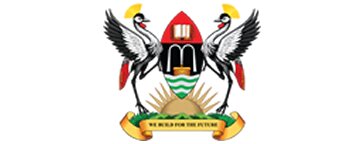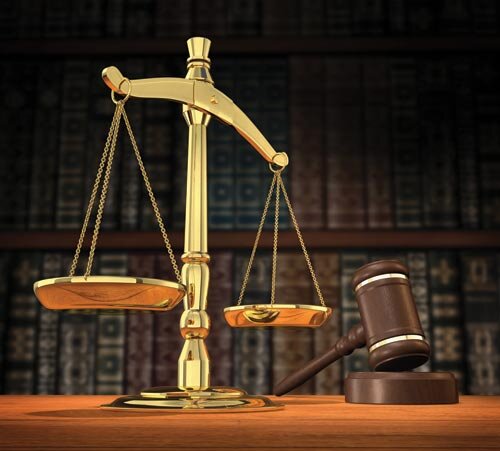Best Water Law Lawyers in Kampala
Share your needs with us, get contacted by law firms.
Free. Takes 2 min.
List of the best lawyers in Kampala, Uganda
About Water Law in Kampala, Uganda
Water Law in Kampala, Uganda refers to the set of legal rules and regulations governing the ownership, control, usage, and management of water resources. These laws are crucial for protecting water quality, ensuring equitable access to water, and managing water-related conflicts in growing urban settings such as Kampala. Water Law is influenced by national statutes, notably the Water Act Cap 152, regulatory bodies, customary practices, and international agreements on shared water resources like Lake Victoria.
Why You May Need a Lawyer
Dealing with water law matters can be complex due to overlapping interests of private individuals, government agencies, and communities. You may require legal help in situations such as:
- Disputes over water access or allocation between neighbors, businesses, or communities.
- Licensing and permit applications for water usage, borehole drilling, or water bottling enterprises.
- Negotiating contracts related to the supply, purchase, or treatment of water.
- Purchase, transfer, or lease of land with water resources or riparian rights.
- Compliance with environmental and public health standards affecting water use.
- Facing penalties or enforcement action from regulatory authorities.
- Resolving conflicts related to pollution, illegal abstraction, or contamination.
- Development projects that may impact water bodies or require an Environmental Impact Assessment (EIA).
Local Laws Overview
The most significant piece of legislation in Uganda regarding water regulation is the Water Act Cap 152. This law provides for the use, control, and management of water resources. Some of the key aspects relevant in Kampala include:
- All water in Uganda is vested in the state, managed by the Ministry of Water and Environment.
- Any abstraction or use of water for non-domestic purposes requires a permit from the Directorate of Water Resources Management.
- Water source protection zones are designated to prevent pollution around vital water catchments and supply points.
- There are rules for waste disposal and effluent discharge into water bodies to protect water quality.
- Environmental Impact Assessments are mandatory for major projects that could affect water resources.
- There are criminal penalties for unauthorized use, pollution, or interference with water bodies.
- Customary rights for domestic use are recognized but cannot infringe upon other statutory requirements.
For Kampala, local authorities like the Kampala Capital City Authority (KCCA) also enforce by-laws and public health regulations related to water management.
Frequently Asked Questions
What constitutes "water resources" under Ugandan law?
Water resources include all surface water, groundwater, rivers, streams, lakes, wetlands, and springs within Uganda’s territory.
Do I need a permit to use water from a river or borehole in Kampala?
For domestic purposes, a permit is generally not needed. However, commercial, agricultural, or industrial usage requires a permit from the Directorate of Water Resources Management.
Can a private landowner prevent others from using water passing through their land?
No, water is a public resource. Landowners may use water for reasonable domestic needs, but exclusive use or obstruction of flow to downstream users is prohibited.
Who regulates water quality and pollution control in Kampala?
The Ministry of Water and Environment, together with the National Environment Management Authority (NEMA), regulate water quality and pollution control, supported by KCCA at the city level.
What are the penalties for illegal water abstraction or pollution?
Penalties may include fines, imprisonment, or both. The severity depends on the nature and extent of the illegal activity as specified in the Water Act and environmental regulations.
How do I file a complaint about water pollution or illegal water use?
Complaints can be lodged with the Directorate of Water Resources Management, NEMA, or the KCCA, depending on the nature and location of the issue.
Are there specific regulations for drilling boreholes in Kampala?
Yes. Drilling requires a permit, and operators must comply with technical standards and protection measures to prevent over-extraction or contamination.
Is it possible to transfer or lease water rights in Uganda?
Water permits may be transferable or leaseable in certain circumstances, subject to regulatory approval and compliance with statutory requirements.
What is the process for obtaining a water use permit?
Applicants must submit documentation to the Directorate of Water Resources Management detailing intended use, location, and measures for environmental protection. Public consultations and technical assessments may be required.
Are there customary or community water rights recognized in Kampala?
Customary rights for domestic water use are recognized but must align with broader regulatory frameworks and not hinder statutory entitlements or public health.
Additional Resources
If you need more information or assistance in water law matters, the following agencies and organizations can be valuable resources:
- Ministry of Water and Environment - Responsible for water policy and administration.
- Directorate of Water Resources Management - Handles permits, allocation, and regulation of water use.
- National Environment Management Authority (NEMA) - Environmental oversight and pollution control.
- Kampala Capital City Authority (KCCA) - Local enforcement of water-related regulations.
- Uganda Bureau of Statistics - Provides data on water use and resources.
- Legal Aid Service Providers Network (LASPNET) - Assists with access to legal services in Uganda.
Next Steps
If you are facing an issue or require guidance under water law in Kampala, consider taking the following steps:
- Gather all relevant documentation, such as permits, contracts, correspondence, or photos related to your issue.
- Consult with a qualified lawyer specializing in environmental or water law for an assessment of your situation.
- Contact relevant regulatory authorities if you need specific permits or wish to file a complaint.
- If your matter involves a dispute, consider whether mediation or alternative dispute resolution may be appropriate.
- Follow any legal or regulatory timelines for objections, appeals, or applications to avoid forfeiting your rights.
- Stay informed about your obligations and rights under current Ugandan water law to ensure compliance and protect your interests.
Professional legal advice can help you navigate complex regulations, safeguard your interests, and ensure compliance with Uganda’s water laws.
Lawzana helps you find the best lawyers and law firms in Kampala through a curated and pre-screened list of qualified legal professionals. Our platform offers rankings and detailed profiles of attorneys and law firms, allowing you to compare based on practice areas, including Water Law, experience, and client feedback.
Each profile includes a description of the firm's areas of practice, client reviews, team members and partners, year of establishment, spoken languages, office locations, contact information, social media presence, and any published articles or resources. Most firms on our platform speak English and are experienced in both local and international legal matters.
Get a quote from top-rated law firms in Kampala, Uganda — quickly, securely, and without unnecessary hassle.
Disclaimer:
The information provided on this page is for general informational purposes only and does not constitute legal advice. While we strive to ensure the accuracy and relevance of the content, legal information may change over time, and interpretations of the law can vary. You should always consult with a qualified legal professional for advice specific to your situation.
We disclaim all liability for actions taken or not taken based on the content of this page. If you believe any information is incorrect or outdated, please contact us, and we will review and update it where appropriate.

















